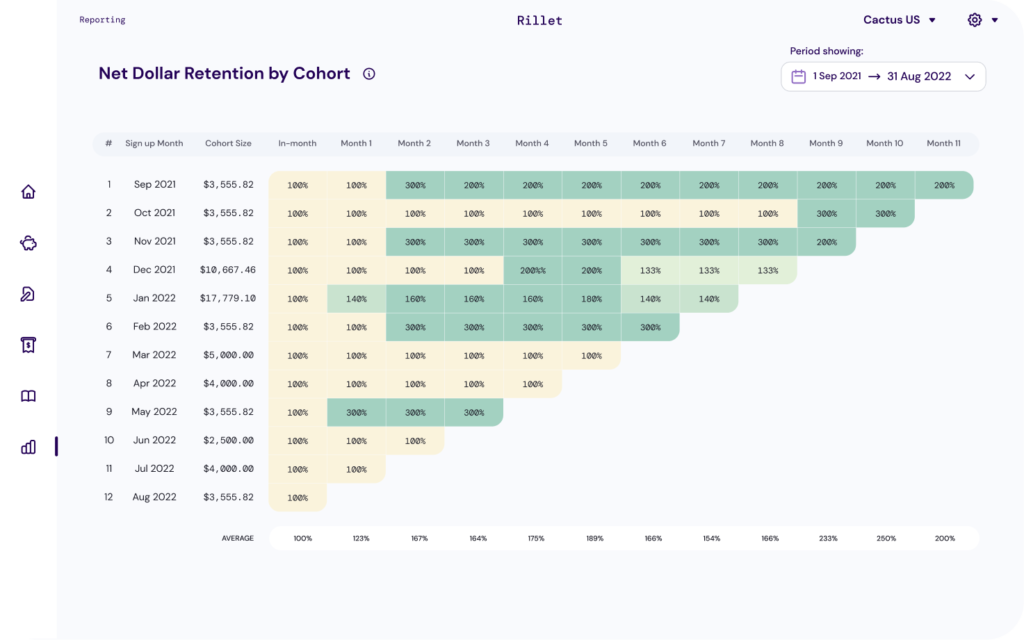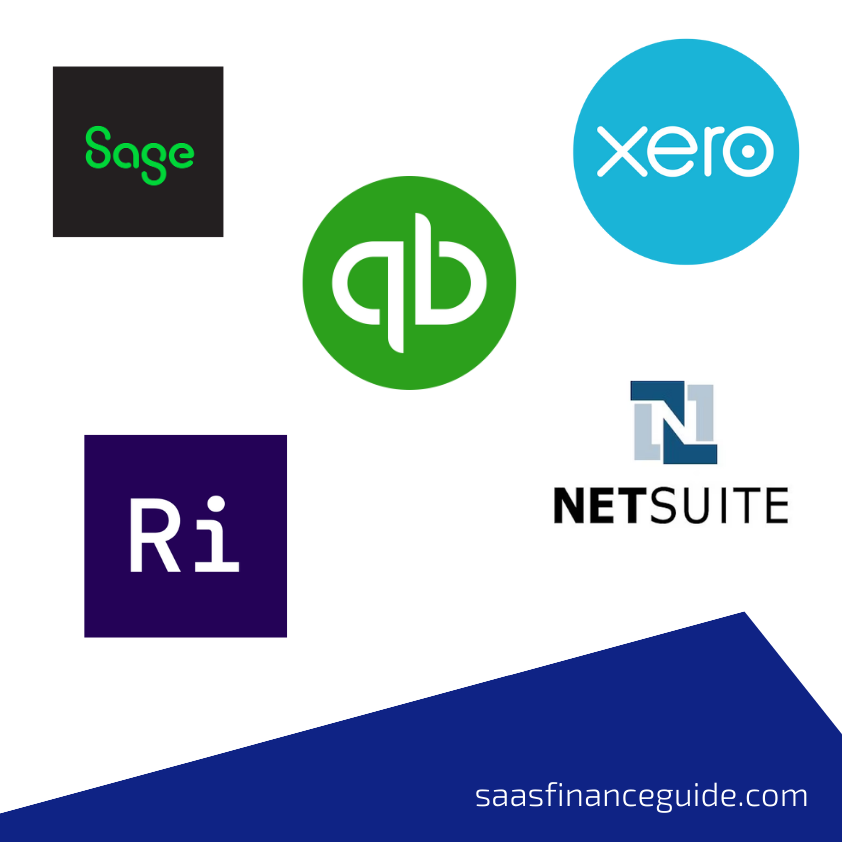The Software as a Service (SaaS) industry is rapidly evolving, bringing with it unique financial management challenges that demand specialized accounting solutions. Traditional accounting software often falls short when it comes to meeting the needs of SaaS companies, particularly in areas like revenue recognition, subscription billing, and financial forecasting. To ensure seamless operations, compliance, and strategic growth, SaaS companies must invest in accounting software that is tailor-made for their specific requirements.
In this article, we provide an in-depth analysis of the best accounting software for SaaS companies, taking into account the key features, benefits, and considerations for each option. This guide will help you identify the software that can best support your business model and facilitate scalable growth.
Key Features to Look for in SaaS Accounting Software
Before diving into the best options available, it’s essential to understand the key features that should be prioritized when selecting accounting software for a SaaS company.
- Revenue Recognition
- Subscription Billing Management
- Financial Forecasting and Reporting
- Integration Capabilities
- Scalability
1. Revenue Recognition
SaaS companies operate on a subscription-based revenue model, which often involves complex revenue recognition processes. Look for software that supports ASC 606 compliance and provides automated revenue recognition features. This ensures that revenue is accurately recognized over the contract’s duration, reducing the risk of financial discrepancies.
2. Subscription Billing Management
Effective subscription billing management is crucial for SaaS companies. The right software should offer automated billing cycles, support multiple pricing models (e.g., freemium, tiered pricing), and provide tools for managing customer subscriptions, renewals, and cancellations.
3. Financial Forecasting and Reporting
To make informed business decisions, SaaS companies need software that offers robust financial forecasting and reporting capabilities. Look for tools that provide real-time insights into key metrics such as Monthly Recurring Revenue (MRR), Customer Lifetime Value (CLTV), and Customer Acquisition Cost (CAC).
4. Integration Capabilities
Your accounting software should seamlessly integrate with other tools used in your business, such as CRM systems, payment gateways, and analytics platforms. This ensures a smooth flow of data across your organization, eliminating the need for manual data entry and reducing the risk of errors.
5. Scalability
As your SaaS company grows, your accounting software should be able to scale with you. Choose software that can handle increasing transaction volumes, support multiple entities, and offer advanced features that will be necessary as your business expands.
Top Accounting Software for SaaS Companies
1. QuickBooks Online Advanced
QuickBooks Online Advanced is a popular choice for SaaS companies due to its flexibility and ease of use. It offers comprehensive features that cater to the unique needs of SaaS businesses.
- Key Features:
- Advanced reporting tools for tracking MRR, churn rate, and other essential SaaS metrics.
- Integration with popular SaaS tools like Stripe, PayPal, and HubSpot.
- Automated revenue recognition in compliance with ASC 606.
- Scalable solutions for growing businesses, including multi-entity support and custom user roles.
- Why It’s Ideal for SaaS Companies: QuickBooks Online Advanced is particularly suitable for small to mid-sized SaaS companies that need a balance of powerful features and affordability. Its robust integration capabilities make it easy to connect with your existing tech stack, ensuring seamless financial management.
2. NetSuite
NetSuite is a leading cloud-based ERP solution that offers a comprehensive suite of tools designed to meet the needs of growing SaaS companies. Its accounting module is particularly strong in handling complex revenue recognition and subscription billing.
- Key Features:
- Comprehensive revenue recognition tools that support ASC 606 and IFRS 15 compliance.
- Advanced subscription billing management with support for complex pricing models.
- Real-time financial dashboards that provide insights into key SaaS metrics.
- Seamless integration with other NetSuite modules, such as CRM and inventory management.
- Why It’s Ideal for SaaS Companies: NetSuite is an excellent choice for larger SaaS companies that require a scalable, all-in-one solution. Its advanced features and customization options make it a powerful tool for managing the financial complexities of a rapidly growing SaaS business.
3. Xero
Xero is known for its user-friendly interface and strong integration capabilities, making it a popular choice for SaaS startups and small businesses. It offers a range of features that cater to the specific needs of SaaS companies.
- Key Features:
- Simple yet effective revenue recognition tools.
- Automated invoicing and subscription billing with support for multiple payment gateways.
- Real-time financial reporting with customizable dashboards.
- Integration with over 800 third-party apps, including popular SaaS tools like Stripe and Square.
- Why It’s Ideal for SaaS Companies: Xero is an ideal solution for small SaaS companies or startups that need a cost-effective, easy-to-use accounting software. Its strong integration capabilities make it a versatile option for businesses that rely on a diverse tech stack.
4. Sage Intacct
Sage Intacct is a cloud-based financial management solution that is particularly well-suited for SaaS companies with complex accounting needs. It offers a wide range of features that help streamline financial processes and improve decision-making.
- Key Features:
- Advanced revenue recognition capabilities, including support for multiple revenue streams and ASC 606 compliance.
- Powerful subscription billing tools with automated invoicing and dunning management.
- Sophisticated financial reporting and forecasting tools that provide deep insights into your business’s financial health.
- Multi-entity management and global consolidations, making it ideal for SaaS companies with international operations.
- Why It’s Ideal for SaaS Companies: Sage Intacct is a top choice for medium to large SaaS companies that require robust financial management tools. Its advanced features and scalability make it a valuable asset for managing the financial complexities of a growing SaaS business.
5. Rillet
Rillet is a cloud-based accounting software that is specialized for SaaS businesses. They are upcomming and offer the best tailer made solution for SaaS businesses.
- Key Features:
- Automated billing and invoicing with support for multiple pricing models.
- Revenue recognition features that help ensure compliance with ASC 606.
- Real-time financial reporting with customizable dashboards.
- Why It’s Ideal for SaaS Companies: Rillit is custom made for your saas business.

Conclusion: Choosing the Right Accounting Software for Your SaaS Company
Selecting the right accounting software for your SaaS company is a critical decision that can significantly impact your business’s financial health and operational efficiency. The software options discussed in this article—QuickBooks Online Advanced, NetSuite, Xero, Sage Intacct, and Zoho Books—each offer unique features and benefits that cater to the specific needs of SaaS companies.
When choosing the best accounting software for your business, consider factors such as the complexity of your revenue recognition processes, your need for scalability, and your existing tech stack. By carefully evaluating these factors, you can select a solution that not only meets your current needs but also supports your long-term growth goals.
